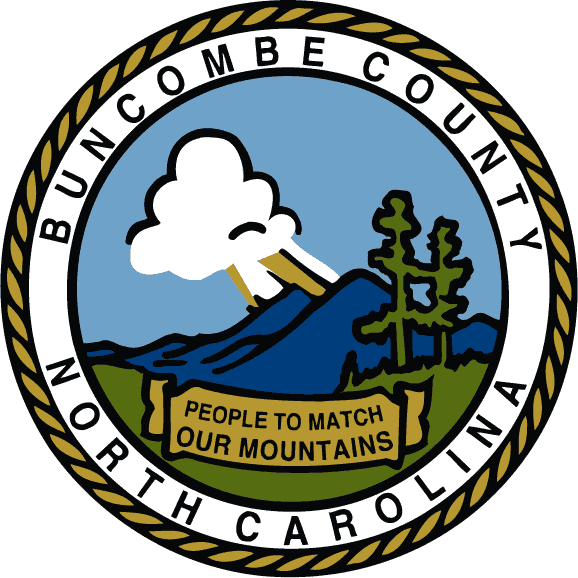The Buncombe County Board of Commissioners is set to consider steps intended to make the process of determining how much property tax homeowners pay more equitable.
Proposed changes on the agenda for the commissioners’ meeting Tuesday, Oct. 18, include adding staff and improving software to make the county’s assessment of home values more accurate, asking state legislators to expand a tax break some homeowners get under state law or create a new exemption for owner-occupied homes, and increasing efforts to tell homeowners how to challenge their tax value.
But county staffers say existing state law would not allow the county to give higher tax values to — and thus collect more property taxes on — short-term rentals. There is “no legal pathway to value STRs differently” than homes occupied by long-term residents, a staff presentation available prior to the meeting says.
The presentation cites an article by Chris McLaughlin, an expert on state tax law at UNC School of Government, that says property “must be appraised at its market value.” The purchase price a willing buyer and a willing seller would agree to in a home sale is the same whether the home is used for an STR through platforms like Airbnb or VRBO or as a family residence, McLaughlin says. Therefore, he believes state law does not allow a local government to distinguish between the two when deciding how much to value a home for tax purposes.
County government’s appraisal system has been under scrutiny since Urban3, an Asheville-based research firm that studies property value and urban design issues, told commissioners last year that the system is unfair to owners of less valuable properties.
The higher the value the county gives a property, the more taxes its owner pays. Urban3 says the values the county gives to more modest homes, many of which are owned by people of color, tend to be close to market value, while the homes of the wealthy are often significantly undervalued, resulting in a tax break for their owners.
County Tax Assessor Keith Miller says the appraisal system contains no elements designed to discriminate against low-income people or residents of color. A study done for the ad hoc committee by consulting firm Syneva found values the county gave to inexpensive homes and expensive ones are equitable, but Urban3 says that study used a flawed methodology.
Last September, commissioners appointed an ad hoc committee of local residents to look into the issue. The committee recommended changes to the board July 19, as previously reported by Xpress. At the Oct. 18 meeting, county staff are expected to outline their plans for implementing those recommendations and seek the commissioners’ feedback.
In other news
Highlights on the remainder of the board’s Oct. 18 agenda include:
- A vote on whether to accept $2.25 million in federal grants for county crime-fighting efforts. The county’s Community Violence Intervention and Prevention Initiative, which works with community members to attempt to reduce crime, would get about $1.5 million. The remainder of the funds, $750,000, would go to three special county courts for substance abusers that connect those accused of crimes with treatment programs.
- A report from Buncombe staffers on preparations for the remnants of Hurricane Ian, which had been projected to dump large amounts of rain on the county. Although the storm ultimately took a more easterly path and caused few disruptions to Buncombe, a presentation on the county’s work says the “preparedness actions taken provided valuable training for all staff involved.”
- A presentation on the county’s “I Voted” sticker contest, won by 10-year-old Polly Crutchfield. Stickers with Crutchfield’s design will be given to voters who cast ballots in the Tuesday, Nov. 8, general election.
The Board of Commissioners meets at 5 p.m. in Room 326 of the county building at 200 College St. in downtown Asheville. Commissioners will also hold a briefing at 3 p.m. in the same location to consider plans for an active aging center, affordable parking program, environmental efforts and other county initiatives.
The full agenda and supporting documents for the regular meeting can be found at this link. In-person public comment will be taken at the start of the regular meeting; no voicemail or email comments will be permitted.
The county streams video of commissioners’ meetings via its Facebook page. That video is later archived on the county’s YouTube channel.




North Carolina needs a Proposition 13:
Proposition 13, adopted by California voters in 1978, mandates a property tax rate of one percent, requires that properties be assessed at market value at the time of sale, and allows assessments to rise by no more than 2 percent per year until the next sale.
North Carolina also needs to tax property owners who use residential properties as a business while landlords offering longterm affordable options to essential workers should be given a substantial tax credit.
Agree on the resident tax credit. There doesn’t appear to be a law against that. Also, the county appears to be practicing something more extreme than Prop 13, but only for wealthy homes. Here’s a video showing some examples.
https://www.youtube.com/watch?v=qEC4sukP7PI
And this practice doesn’t adhere to what what “equity” looks like.